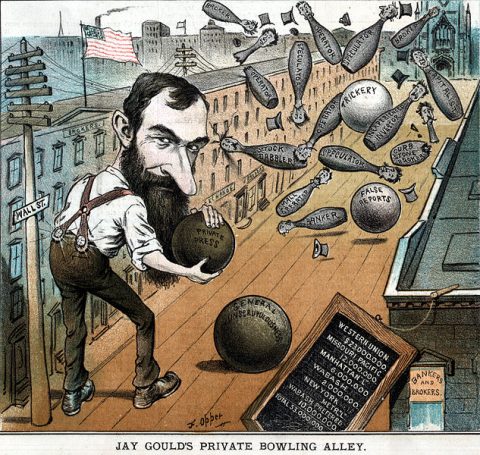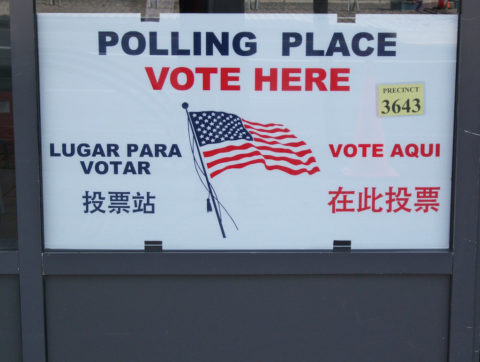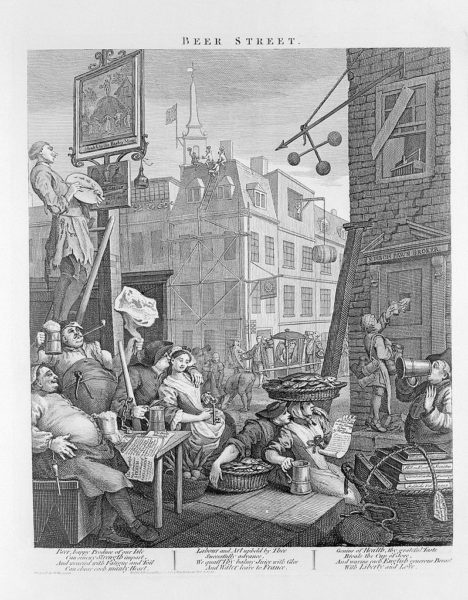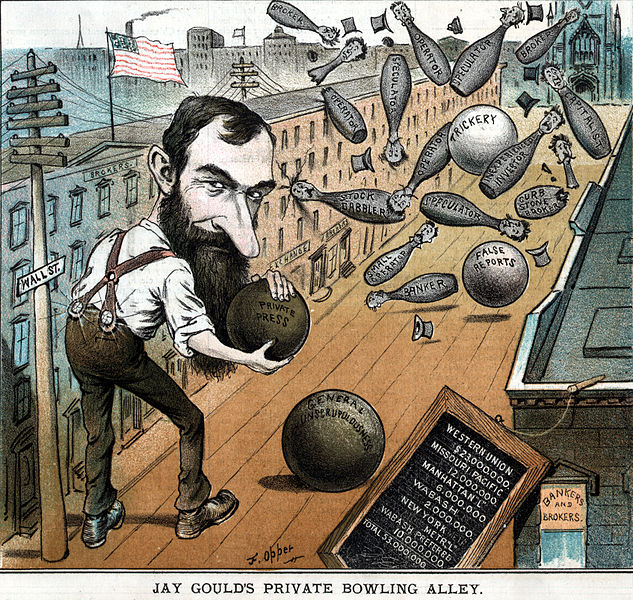World War Two
Published 20 Apr 2021On paper, Hitler never made a lot of money. Yet he became one of the wealthiest people of his time. This is how he stole his fortune.
Between 2 Wars: Zeitgeist!
https://www.youtube.com/watch?v=KThHc…
Hitler Never Gave the Order – So Who Did? – WW2 Special
https://www.youtube.com/watch?v=uQsGU…
The Nazis: Most Notorious Art Thieves in History – WW2 Special: https://www.youtube.com/watch?v=tXvo-…
Why the Nazis Weren’t Socialists – “The Good Hitler Years” | BETWEEN 2 WARS I 1937 Part 2 of 2
https://www.youtube.com/watch?v=YHAN-…Join us on Patreon: https://www.patreon.com/TimeGhostHistory
Or join The TimeGhost Army directly at: https://timeghost.tvFollow WW2 day by day on Instagram @ww2_day_by_day – https://www.instagram.com/ww2_day_by_day
Between 2 Wars: https://www.youtube.com/playlist?list…
Source list: http://bit.ly/WW2sources
—
Hosted by: Spartacus Olsson
Written by: Joram Appel and Spartacus Olsson
Director: Astrid Deinhard
Producers: Astrid Deinhard and Spartacus Olsson
Executive Producers: Astrid Deinhard, Indy Neidell, Spartacus Olsson, Bodo Rittenauer
Creative Producer: Maria Kyhle
Post-Production Director: Wieke Kapteijns
Research by: Joram Appel
Edited by: Karolina Dołęga
Sound design: Marek KamińskiColorizations by:
– Daniel Wiess
– Dememorabilia – https://www.instagram.com/dememorabilia/
– KlimbimSources:
Picture of building appartement on Prinzregentenplatz 16, Munich in 1910. courtesy of Stadtarchiv München, DE-1992-FS-NL-PETT1-2847 https://stadtarchiv.muenchen.de/scope…
– Bundesarchiv
– National Archives NARA
– Imperial War Museum: IWM Art.IWM PST 4099
– United States Holocaust Memorial Museum
– Narodowe Archiwum Cyfrowe
– Nationaal Archief
– The picture of the Eagle’s Nest in 2020 courtesy of Marcus Hebel from Wikimedia – https://commons.wikimedia.org/wiki/Fi…
– The picture of the Eagle’s Nest in 2014 courtesy of Nordenfan – from Wikimedia https://commons.wikimedia.org/wiki/Fi…
– Icons from The Noun Project: barracks by Smalllike, Cook by Alice Design, Farm by Laymik, football field by Mavadee, House by Abhimanyu Bose, Kitchen by RD Design, Library by Adrien Coquet, Housekeeper by Richie Romero, Old Car by Halfazebra Studio, Pool by Loritas Medina, Projector by Ralf Schmitzer, Waiter by chris dawson, Woman by Deemak Daksina, Woman by Wilson Joseph, Woman hat by Xinh Studio, Woman With a Hat by Graphic EnginerSoundtracks from Epidemic Sound:
– “The Inspector 4” – Johannes Bornlöf
– “London” – Howard Harper-Barnes
– “Other Sides of Glory” – Fabien Tell
– “Rememberance” – Fabien Tell
– “Deviation In Time” – Johannes Bornlof
– “Break Free” – Fabien Tell
– “March Of The Brave 10” – Rannar Sillard – Test
– “Ominous” – Philip Ayers
– “Symphony of the Cold-Blooded” – Christian Andersen
– “Please Hear Me Out” – Philip AyersArchive by Screenocean/Reuters https://www.screenocean.com.
A TimeGhost chronological documentary produced by OnLion Entertainment GmbH.
April 21, 2021
Hitler’s Money and How He Stole It – WW2 Special
April 12, 2021
The Constitution of the Spartans
Historia Civilis
Published 11 Sep 2017Patreon | http://historiacivilis.com/patreon
Donate | http://historiacivilis.com/donate
Merch | http://historiacivilis.com/merch
Mailing List | http://historiacivilis.com/mailinglist
Twitter | http://historiacivilis.com/twitter
Website | http://historiacivilis.comSources:
The Constitution of the Spartans, by Xenophon: http://amzn.to/2j7JXTB
The Moralia, by Plutarch: http://amzn.to/2gNMYHU
Parallel Lives: The Life of Lycurgus, by Plutarch: http://amzn.to/2xS29nI
Politics, by Aristotle: http://amzn.to/2wMq5ss
Rhetoric, by Aristotle: http://amzn.to/2xS3niO
Laws, by Plato: http://amzn.to/2wLpsiN
On the Republic, by Cicero: http://amzn.to/2j7Flgg
The Histories, by Herodotus: http://amzn.to/2xdH4a7
The Spartan Regime, by Paul A. Rahe: http://amzn.to/2vPmRqS
Property and Wealth in Classical Sparta, by Stephen Hodkinson: http://amzn.to/2xdV7MS
The Rise of Athens, by Anthony Everitt: http://amzn.to/2j69uMS
Persian Fire, by Tom Holland: http://amzn.to/2vPyCxEWe are a participant in the Amazon Services LLC Associates Program, an affiliate advertising program designed to provide a means for us to earn fees by linking to Amazon.com and affiliated sites.
Music:
“Air Hockey Saloon,” by Chris Zabriskie
“Candlepower,” by Chris Zabriskie
“CGI Snake,” by Chris Zabriskie
“Heliograph,” by Chris Zabriskie
“Hallon,” by Christian Bjoerklund
From the comments:
Temporary Fakename
3 years ago
You know, i thought the Roman political system was pretty odd and arcane. But the Spartans have a dual monarchy that has absolute power, except when it doesn’t, an elected Senate that is chosen partially randomly that can pass whatever the hell they want with a public assembly and punish kings, except when an all-male aristocracy decided no, a female aristocracy that is overwhelmingly rich but can’t vote, and a population so terrified of its own slaves that it ritually committed atrocities against them. Compared to that Roman politics look simple and elegant.
I found the presentation quite interesting and informative, but I felt that some discussion of the differences between the terrible plight of the Helots and the not-quite-free status of the Perioikoi was merited. I also felt that the final segment on the eventual decline of Sparta missed a major factor — Spartan military defeats in the Battle of Leuctra in 371 BC and the Battle of Mantinea in 362 BC — but reading down in the comments, I saw someone else had already brought this up:
xelena
2 years ago (edited)
This is a good video, but is missing a super important point at the end: The cause for the decline of Spartan power was its defeat by Epaminondas of Thebes and his freeing of Messenia (the land of the Helots). He also founded Messene in Messenia and Megalopolis in Arcadia for the Helots, which became a powerful check to Sparta. Spartan power never recovered from this death blow to its slave economy and continued to wither away into the nothingness you describe.Epaminondas is mostly forgotten today, but he was one of the greatest men of antiquity. It was him and Pelopidas who put to bed the myth of Spartan invincibility and freed an entire people who had been enslaved for centuries. So in a way, the crippling blow did come from other Greeks, and the Helots did participate in it.
March 22, 2021
QotD: Signalling
One of the many concepts that has entered the mainstream from the Dissident Right is signalling. Its first appearance came as criticism of social justice warriors, who were signalling their virtue by opposing someone or some thing, real or imagined. Virtue signalling is not new. It has probably been a part of human society since people began to settle into agricultural communities. Scipio Africanus, the great Roman general, who defeated Hannibal at Zama, was also famous for his virtue signalling.
These days, you will hear guys on the alt-right talk about counter-signalling. The easiest example of this is the newly minted rich guy going out and buying expensive display items, like cars or gaudy homes. NBA players are prone to this. They want to signal their wealth by acquiring highly visible, expensive items. An old money guy, in contrast, counter-signals by living in an old farmhouse that has been in the family for generations and driving a 40 year old Saab. He’s the sort of rich that feels no need to advertise it.
Signalling is a basic human trait. We all do it to one degree or another. Walk into a prison and you will see an array of tattoos on the inmates. These will signal gang affiliations, time served in the system, facilities in which the inmate has served and the individual’s violence capital. That last part is an important part of keeping the peace. To civilians, a face tattoo is always scary, but in jail, the right neck tattoo can tell other inmates that they are in the presence of an accomplished killer for a particular prison gang.
Virtue signalling and danger signalling are the easiest to understand, but people also use verbal and non-verbal signals to indicate trust or test the trustworthiness of others. A criminal organization, for example, will have a new member commit a pointless crime to demonstrate their trustworthiness. This is not just to sort out police informants, as is portrayed on television. It’s mostly to ascertain the willingness of the person to commit to the life of the organization. It’s hard to be a criminal if you will not commit crimes.
Outlaw biker culture is a good example of the use of signalling to establish trust relationships. Bikers have always, for example, adopted Nazi symbols as part of their display items. Bikers are not sitting around reading Julius Evola. What they are doing is signalling their complete rejection of the prevailing morality. By adopting taboo symbols and clothing, the outlaw biker is letting other bikers know his status, as much as he is letting the squares know he is a dangerous guy, who should be avoided.
The Z Man, “Codes of the Underworld”, The Z Blog, 2017-07-26.
February 26, 2021
Waymarkers of the American caste system
Scott Alexander reviews Paul Fussell’s Class: A Guide Through The American Status System, and finds Fussell has helpfully delineated how an outsider can guess someone’s class (or caste, as Fussell would prefer) … at least how that outsider could do so in 1983:
The upper class is old money. The people you think of as rich and famous — tech billionaires, celebrities, whatever — aren’t upper class. However privileged they started off, they still had to put in at least a smidgeon of work to get their money, which disqualifies them. Real uppers inherit. Even famous people who come from old money usually aren’t central examples of upper class; the real upper class has no need to seek fame. They mostly just throw parties — but not interesting parties, because that would imply they have something to prove, which they don’t. They live in mansions — but not awesome mansions they designed themselves with some kind of amazing gaming room or something, because that would imply they have something to prove, which they don’t. They live in meticulously boring mansions and throw meticulously boring parties. They have the best and classiest versions of everything, but it’s a faux pas to compliment any of it, because that would imply that they were the sort of people who might potentially not have had the best and classiest version of that thing. They fill their houses with Picassos and exquisite antique furniture, and none of them ever express the slightest bit of satisfaction or praise about any of it. You have never heard of any of these people, although you might recognize the last name they share with a famous ancestor (Rockefeller, Ford, etc).
The middle classes are salaried professionals, starting with the upper-middle class. Jeff Bezos, for all his billions, is only upper-middle-class at best. So are many of the other people you think of as rich and famous and successful. The upper-middle-class likes New England, Old England, yachts, education, good grammar, yachts, chastity, androgyny, the classics, the humanities, and did I mention yachts?
The middle class is marked by status anxiety. The working class knows where they stand and are content. The upper-middle class has made it; they’re fine. And the upper class doesn’t worry about status because that would imply they have something to prove, which they don’t. But the middle class is terrified. These are the people with corporate jobs who say things like “I’ve got to make a good impression at the meeting Tuesday because my boss’ boss will be there and that might determine whether I get the promotion I’m going for”. The same attitude carries into the rest of their lives; their yards and houses are maintained with a sort of “someone who could change my status might be watching, better make a good impression”. They desperately avoid all potentially controversial opinions — what if the boss disagrees and doesn’t promote them? What if the neighbors disagree and they don’t get invited to parties? They are the most likely to be snobbish and overuse big words, the most obsessed with enforcing norms of virtuous behavior, and the least interested in privacy — asserting any claim to privacy would imply they have something to hide. Their Official Class Emotions are earnestness and optimism; they are the people who patronize musicals like Annie and Man of La Mancha where people sing saccharine songs about hopes and dreams and striving, and the people who buy inspirational posters featuring quotes about perseverance underneath pictures of clouds or something.
Proles do wage labor. High proles are skilled craftspeople like plumbers. Medium and low proles are more typical factory workers. They have a certain kind of freedom, in that they don’t have status anxiety and do what they want. But they’re also kind of sheep. They really like mass culture — the more branded, the better. These are people who drink Coca-Cola (and feel good about themselves for doing so), visit Disneyland (and accept its mystique at face value), and go on Royal Caribbean cruises. When they hear an ad say a product is good, they think of it as a strong point in favor of buying the product. They feel completely comfortable expressing their opinions, but their opinions tend to be things like “Jesus is Lord!”, “USA is number one!”, “McDonalds is so great!”, and “Go $LOCAL_SPORTS_TEAM!”. They are weirdly obsessed with cowboys (Fussell says cowboys represent the idea that poorer people are freer and more authentic than rich office-worker types, plus the West is the prole capital of the USA) and with unicorns (Fussell: “I’ve spent six months trying to find out exactly why, and I’m finally stumped”). When they have unique quirks, they tend to be things like “collecting lots of Disney memorabilia” or “going powerboating slightly more often than the other proles do”. There’s also a sort of desperate prole desire to be noticed and individuated, which takes the form of lots of “Personalized X” or “Y with your name on it”, and also with making a lot of noise (see: powerboating). Fussell describes the most perfectly prole piece of decor as “a blue flameproof hearthrug with your family name in Gothic letters beneath seven spaced gold stars and above a golden eagle in Federal style”.
It’s impossible to tell when Fussell is serious vs. joking. The section on the physiognomy of different classes has to be a joke, right? But then how did he come up with the Virgin vs. Chad meme in 1983? Also, why does my brain keep telling me these are John McCain and Donald Trump?
A friend urges me to think of these not as “rich/successful people” vs. “poor/unsuccessful people”, but as three different ladders on which one can rise or fall. The most successful proles are lumber barons or pro athletes or reality TV stars. These people are much richer and more powerful than, say, a schoolteacher, but they’re still proles, and the schoolteacher is still middle class. Likewise, a very successful middle class person might become a professor or a Senator or Jeff Bezos, but this doesn’t make them even a bit upper class.
(I’m not sure it’s possible to be a more or less successful upper class person; being successful would imply having something to prove, which they don’t).
February 5, 2021
QotD: Misunderstanding the threat/promise of robotics and AI
So, start with the very basics. Human desires and needs are unlimited – that’s an assumption but a reasonable one. There’re some number of people on the planet. This provides us with a lot of human labour but not an unlimited amount. Thus labour is a scarce or economic resource – and we’ve not enough of it to sate all human desires and wants.
OK, so, now we use machines to do some jobs that were previously done by humans. Imagine that this new technology actually required more human labour – that it created new jobs in greater volume than those it destroys. Say, the tractor and combine harvester industry needs more people in it than we used to use to cut the crops by hand. We’ve just made ourselves poorer. We used to have some amount of grain through the labour of some number of people. We’ve now got that grain but by using the labour of more people. We’ve used more of our scarce resource and we’re now poorer by the loss of what they used to make when not hand cutting grain but now no longer are by making tractors.
What makes us richer is if the tractor industry has record production statistics while using less labour than the hammer and sickle. That means that some human labour is now free to go off and try to sate a human desire or want for something other than grain. Ballet dancing for example. We’re now richer – tractors and combine harvesters have made us richer – by whatever value we put on more ballet dancing.
The entire point of any form of automation is to destroy jobs so as to free up that labour to do something else. The new technology doesn’t create jobs, it allows other jobs to be done.
The only point at which this fails is if human needs and desires aren’t unlimited. Which means that we might be able to provide everything that everyone wants without us all working. Which doesn’t really sound like much of a problem really.
Tim Worstall, “As Usual, World Economic Forum Gets Robots And AI Wrong Over Jobs”, Continental Telegraph, 2018-09-18.
February 2, 2021
When the self-defined elites achieved class consciousness
At Rotten Chestnuts Severian adds to his ongoing series of posts identifying areas where Marx was right:

“Jay Gould’s Private Bowling Alley.” Financier and stock speculator Jay Gould is depicted on Wall Street, using bowling balls titled “trickery,” “false reports,” “private press” and “general unscrupulousness” to knock down bowling pins labeled as “operator,” “broker,” “banker,” “inexperienced investor,” etc. A slate shows Gould’s controlling holdings in various corporations, including Western Union, Missouri Pacific Railroad, and the Wabash Railroad.
From the cover of Puck magazine Vol. XI, No 264 via Wikimedia Commons.
… I liken Karl Marx to one of those bird-masked medieval Plague doctors — he sees the pathology clearly, indeed far faster and better than anyone else, but his proposed “cure” is far likelier to kill you than the actual disease. Worse, what makes Marx’s cure especially lethal is what ends up making his diagnosis essentially right: It’s a self-fulfilling prophecy.
The proletariat is achieving class consciousness, all right — look no further than the GameStop “short squeeze” for proof. But the only reason the proles are achieving class consciousness is because the “capitalists” forced them to, just like Marx said they would. The Elite and the Bureaucracy (usually, but not always, a distinction without a difference) finally achieved class consciousness through the combination of NAFTA and the Louvre Accords. Starting around 1990, then, the Elite self-consciously embraced their role as rootless, stateless, jet-setting parasites (with the wannabe-Elites in the Media, academia, and the bureaucracies signing up for tours of duty as fart-catchers, both to bask in reflected glory and in hopes of being promoted).
In short, our “Capitalists” — really, “financial-ists” or “spreadsheet gangsters,” since they don’t actually make anything, they just bust out existing firms via debt manipulation — behave exactly as Marx described factory owners behaving all the way back in the First Industrial Revolution.In my naivete, I used to think Marx’s ranting was hyperbole. I cited the example of Andrew Carnegie — a real bastard in his youth, who went on to be one of the world’s great philanthropists. That’s human behavior, I said, as opposed to the bloodthirsty caricature of Marx’s fantasies … but I was wrong, comrades. Carnegie happily would’ve sold his fellow Americans down the river, just as Bezos, Gates, and the rest of the pirates-in-neckties are happily selling us down the river now. Only two things prevented it back then: one structural, one cultural.
The structural one is simply technology, and therefore uninteresting. Britain’s “free traders” — you know, the Jardine-Matheson types who started the Opium Wars for fun and profit — would’ve happily outsourced Britain’s entire industrial base to China if they hadn’t been hampered by wind speed. By the time this was technically feasible — which is about 1860, if you’re keeping score — simple inertia had taken over. They didn’t retool until they had to, at which point instant communications and modern ships … well, you know the rest. Like I said, it’s vital, but boring.
The cultural one is much more interesting. You might be tempted to say, as I did, that Jardine and Matheson were always on the lookout for #1, of course, but were sincere British patriots for all that, just as Carnegie for all his faults was an authentic American. I doubt it, comrades. I sincerely doubt it. What kept these guys in check wasn’t patriotism, or even culture. Rather, it was fear.
January 22, 2021
Hypocrisy is bad (for mere humans) but ostentatious hypocrisy is reserved for the powerful
David Warren notes the two very different kinds of hypocrisy on display during these fallen days:

Justin Trudeau with dark makeup on his face, neck and hands at a 2001 “Arabian Nights”-themed party at the West Point Grey Academy, the private school where he taught.
Photo from the West Point Grey Academy yearbook, via Time
Hypocrisy is often dismissed as a humdrum moral vice; rather as pæderasty, or buggery, or commissioning abortions: things considered very grave in the past, but now quite acceptable among progressive persons. One feels almost cruel, or envious, to criticize the adept hypocrite. How dare we try to withdraw the air in which he lives and breathes? “Zero tolerance” is directed at more serious vices, such as having wrong opinions, or voting Republican.
As Paul Valéry said, “Power without abuse loses its charm,” and when, for instance, a governor who proclaims crippling Batflu restrictions is seen ignoring them, he is outraged. His critics are his opponents, he reasons; they really ought to be investigated first!
A milder, general criticism is sometimes made, about the lifestyles of the rich and famous. How is it that prominent environmentalists burn so much jet fuel in their travels from one conference to another, at the world’s most lavish resorts? Shouldn’t they go about in sackcloth and ashes, as they tell us to do?
This is to misunderstand their hypocrisy. We assume they are motivated by greed, and the love of pleasure, the way we would be. But why must it be piled on so thick? Many a jetsetter hardly uses the jacuzzis. He takes a quick shower, because he has another aeroplane to catch.
Yes, most people are attracted to the sumptuous, but in a fine and private way. They rarely encourage the paparazzi, or wish to be watched over their fences and walls. They hire security, to scare trespassers away. Servants, up to a point, must be endured, but in the past they could be ignored, the way we ignore appliances. I may not have a toaster, but I do have a stove, and could swear that it is staring at me. But it was manufactured in the 1960s, so I needn’t fear it has an Internet connexion. And besides, if it did, it wouldn’t be reporting to the tabloids, but to technical staff. We try to ignore them, at least so long as we can pretend they are equivalent to our maids and butlers.
November 17, 2020
November 12, 2020
The party of the Lucky Winners
Brian Micklethwait sends some thoughts from his sick-bed on the (still in question) outcome of the US election:

“Polling Place Vote Here” by Scott Beale is licensed under CC BY-NC-ND 2.0
Democrat electoral cheating is not a new story. I’ve been reading stuff about America and American politics all my life, off and on and mostly off, and like a thread through it all is the fact that in big cities that they run and are determined to go on running, Democrats cheat in elections. So Democrats cheating in elections this time around is not the big change.
The big change is a Republican refusing to retreat in the face of it. Why? Why is Trump being so unpresidential, so undignified, so … just so ghastly? The answer is that the big political picture has been transformed, partly by him, but partly by him responding to the fact that it has already changed so much.
Time was when Republicans were the party of the Lucky Winners. Country clubbers, corporate executives, yacht owners, owners of houses with several garages, presided over by perfectly manicured wives, in charge of several well behaved children and subservient servants. The Democrats, meanwhile, were the party of the workers, of people struggling to do work or even to get work. Any plutocrats who were attached to the Democrats, like the Kennedys or (FD) Roosevelt, were numerically insignificant oddities. (Whether that was true, I don’t know. But this was the dominant narrative, as people say now.)
But that’s all changed. The Democrats are now the party of the Lucky Winners, and also of the unlucky losers at the very bottom of the heap who can only now depend on the crumbs of comfort bestowed upon them by the Lucky Winner class. The Republicans have become the party of the workers in the middle, the middle class, as Americans accurately describe them. The Republicans are the party of the people who still struggle to work and to stay working, and who hate the whole idea of giving up and becoming dependant upon the Lucky Winners.
Not all “workers” voted for Trump. A lot of workers, especially in things like IT, are still solidly Democrat. But the heart of the Trump vote was workers of a certain sort. The heart of the Trump vote was no longer the Lucky Winners class. They have migrated over to the Democrats.
Okay, now for the key bit of what I’m saying.
In olden times, if you were a member of the Lucky Winners class, and your guy lost an election, complaining about cheating was frankly a bit, well, undignified. You and your pals controlled almost all the levers of power in society. You owned the big corporations. Your children were creaming off most of the expensive education. The world was yours. Were you going to bitch about electoral corner-cutting by a few machine politician Democrats in big cities who had enough clout to say boo to you, every once in a while? This was not a good look. And on the whole, Republicans took their defeats, and if Democrat cheating cost them a win or two, well, that was how it crumbled, cookie-wise. Legally, that may not have been the rule, but actually, that was the rule. Noblesse oblige. Let the people picked by the struggling class have their turn. Suck it up. Go play golf.
But now? Now, what is happening is that the Lucky Winners class is telling the class definitely below it in the pecking order that this subordinate class now has to just lie back and let it happen, when the electoral cheating happens all over them.
This is not a good look either, but it’s what the Lucky Winner class now think they can do, and get away with. Maybe they can, in the sense that they may well get their guy over the line this time around. But if they do, but if it then becomes clear that they did this by cheating on a large scale in this election, then the words “reap” and “whirlwind” spring to mind.
October 31, 2020
Modern Halloween costumes show us how wealthy we have become
Richard Lorenc looks back at the “costumes” for Halloween from the 1970s and 1980s to help illustrate how much our general economic picture has improved since those dark days:
While my husband and I were recently struggling to figure out our costumes for this Halloween (and we still don’t have any idea), he pulled up some old commercials on YouTube. The off-the-shelf options that trick or treaters had were, in a word, pitiful.
Basically, costume makers thought it was ok to make a front-only plastic mask (in any color, really) of a character and top it off with a plastic smock featuring an illustration of said character with either its name or the name of the show or movie it comes from. There was no attempt to dress in the character’s actual attire. If you wanted that, you’d either have to know a professional costumer or cobble together something from your closet.
Take a look for yourself at just how costume-poor we used to be:
Obviously, every costume is an opportunity to generate interest in a brand or franchise, and slapping on a logo is an easy way to get a name out there, but these costumes truly heralded a dark time for Halloween. Some may even argue that it demonstrated crass consumerism at its worst, with cynical companies taking the easiest route to grabbing a couple of bucks from desperate parents.
The truth of the tragedy of terrible old Halloween costumes has to do with a simple idea: specialization.
[…]
The next time you compare our screen-accurate store-bought costumes of Darth Vader and Mr. Incredible to those of yesteryear, remember that we enjoy them today not because previous generations didn’t care for accurate costuming, but because growing trade across the globe has generated so much wealth for each of us that we can now demand things we may have only imagined previously.
I only realized as I got ready to schedule this post that it was an article I’d blogged a couple of years back, but the point of the story is still relevant even in our pandemic-wracked economy of 2020.
October 10, 2020
QotD: McMansions
McMansions are faker than your friends were in middle school. What do I mean by fake? I mean using low-cost reproductions of quality materials or features in order to portray the illusion of wealth. I’m talking about the knockoff handbags of architecture.
“McMansion Hell from A to Z: Part One (A-H)”, McMansion Hell, 2016-09-25.
October 3, 2020
QotD: Literal first world problems
Many of today’s concerns, however valid or invalid any of them might be, are luxury concerns. Only rich people – by which I mean people whose standard of living is roughly that of ordinary citizens of first-world countries in the early 21st century – can afford to worry about the likes of climate change, species loss, the manner in which chickens are raised, urban sprawl, how locally “sourced” is the eggplant that we eat, and rising Gini coefficients.
Again, I don’t say that these and other modern concerns are invalid. Some are and some aren’t. But it’s good to pause from time to time to be thankful that we’re wealthy enough to have escaped most of the daily, much more horrible concerns that pressed immediately upon our ancestors. It’s appropriate to be grateful that we’re rich enough to worry about, say, what might happen in a few decades to the sea level in a distant country rather than about whether or not our children will die of starvation during the night.
Don Boudreaux, “Quotation of the Day…”, Café Hayek, 2018-05-27.
August 9, 2020
Canadian Art magazine’s “woke suicide pact”
As a cultural barbarian and all-around Neanderthal, it will come as little surprise to both my readers that I’d never even heard of Canadian Art magazine. As a result, the recent decision to cease publication due to the unresolved (and almost certainly unresolvable) issues of needing to be funded by rich white people:
These evils were explained in a long article published by Canadian Art‘s former editor-in-chief, David Balzer (self-described “gay, fag, queer. Ambivalent Libra“), in which he complains that the progressive agenda of the magazine he edited was forever being undercut by the need to solicit funds from wealthy white donors. Or, as he describes it, the pursuit of: “white, liberal money — the champagne socialists.”
Shockingly, these donors are not especially fond an incessant slew of articles with titles such as Drop the Charges and Defund the Police, Says New Artists’ Letter for Black Lives, Give Us Permanence — Ending Anti-Black Racism in Canada’s Art Institutions, and A Crisis of Whiteness in Canada’s Art Museums.
Balzer’s analysis of the growing tension between establishment donor and do-good editor is spot on:
Most boards, which are also majority white, are [interested] in going to where they believe the money is. So the argument goes: It takes a certain talent, panache, to be president, director, or CEO, to open those pocketbooks, and without these skills, culture cannot run. This argument implies that culture cannot run if its backrooms are not white … Many corporate partners make possible the lavish, yearly fundraising galas that cultural organizations host: ostentatious displays of whiteness and wealth that are the public-facing versions of the aforementioned work done by white presidents, directors and CEOs.
It’s a problem that every charity, art outlet, and activist organization in Canada will face. Supporting the arts is rarely an act of pure altruism. It has always been a status flex by the well-connected barons and baronesses of privilege. At its most cynical, arts funding is a high-class game of reputation laundering.
July 28, 2020
QotD: Incentives and opportunity costs
The first and most important thing in all economics is that incentives matter. If you can grasp that and also get to grips with the second, that there are always opportunity costs, then you’re going to be doing better than 90% of the economics profession itself. But do remember that incentives matter, incentives really, really, matter. Changes in tax law have stopped people from dying for example.
No, really, there was one of those natural experiments, when inheritance tax laws changed at the end of the year. There was a definite blip downwards in the death rate of people rich enough to pay inheritance tax at the end of the year, a corresponding one upwards again as the new, lower, rates came into effect in January. Incentives really, really, matter.
Tim Worstall, “What’s The Over And Under On Tesla’s 200,000th Car Being Delivered On July 1?”, Continental Telegraph, 2019-05-03.











